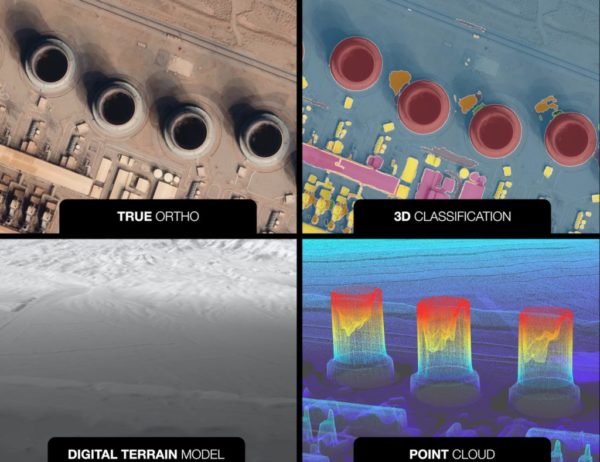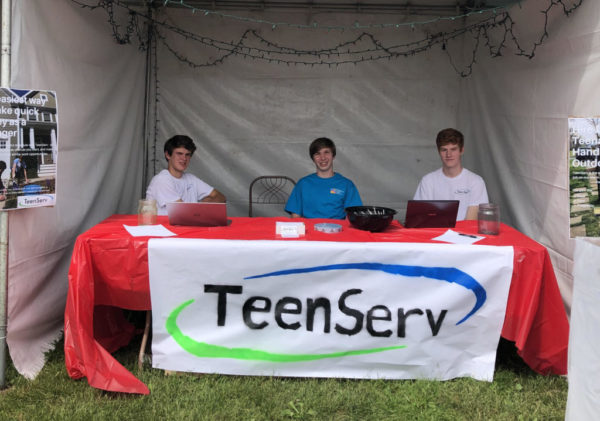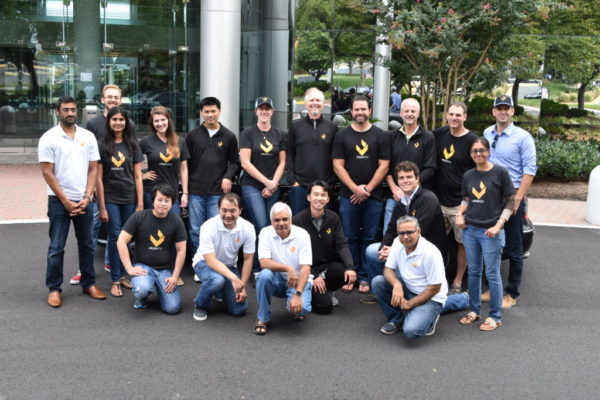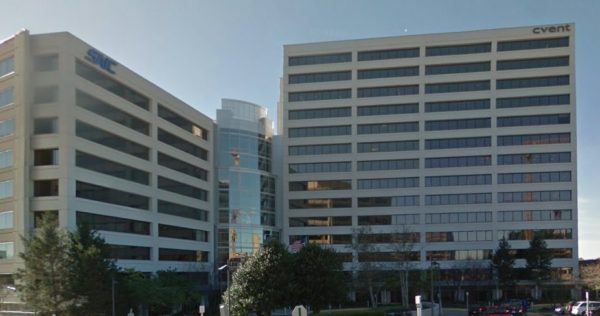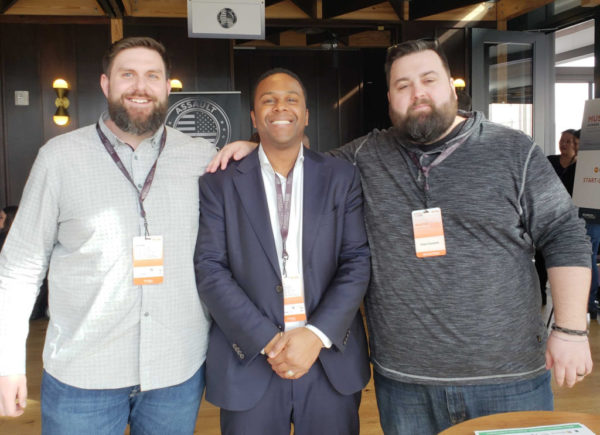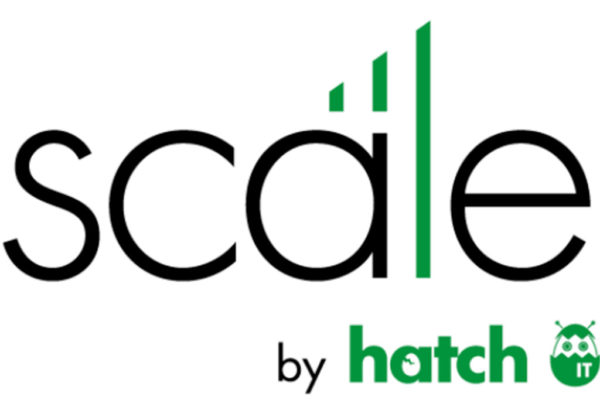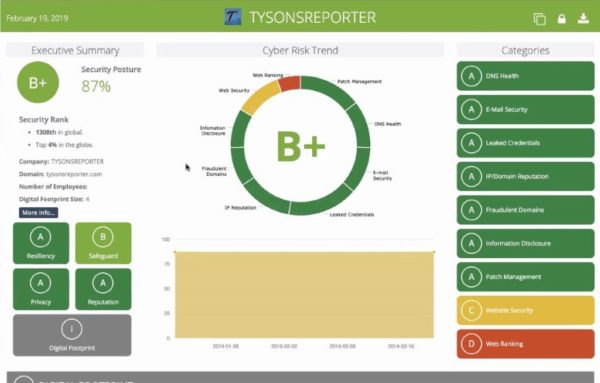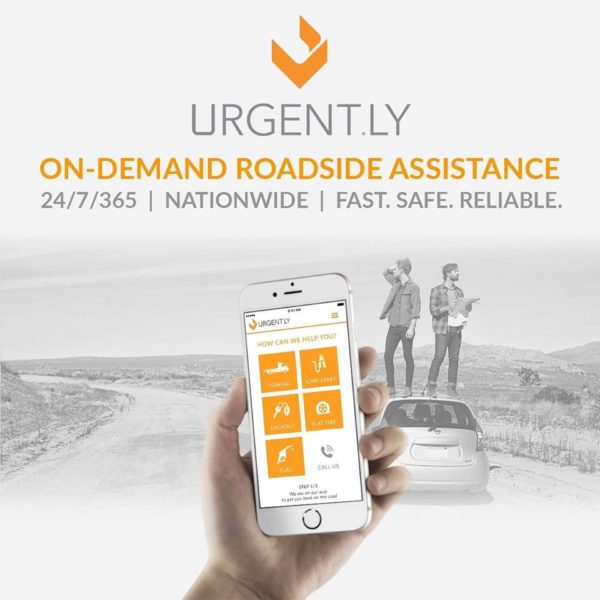A 3D modeling company in Tysons is trying to change the way U.S. armed forces, governments and disaster aid organizations strategize.
Vricon, a Tysons based company, uses imagery from satellites to map out land in acute detail to provide clients with geospatial data and solutions that can be used for planning and preparation.
Headquartered at 8280 Greensboro Drive, the company works with the federal government, armed forces, telecommunication companies and emergency responders, according to the company’s website.
Barry Tilton is the vice president of engineering and CTO for U.S. government programs at Vricon. He joined the company in 2017 shortly after its founding in 2015 and now works closely with company executives to develop the software and mapping tools.
The company is currently working on developing a tool that would allow troops to train for situations and eventualities in foreign or unfamiliar places.
There is no way of knowing where the next global conflict will occur, he said, but this technology allows armed forces to “modernize” their tactics.
Currently, the army uses high-resolution gaming models for training, Tilton said, adding that before the technology, training was limited to a smaller number of scenarios.
“The folks in the training environment wanted to get a set of tools that more accurately reflect the kind of information available to a warfighter in operation,” he said.
When it comes to international affairs, Vricon’s executives understand the power of their product, and Tilton said that company executives are careful when releasing data to companies or entities.
The CEO and the company’s board will work with the State Department when they receive data requests that might be used for nefarious purposes, he said, adding that they have denied requests for information in the past.
“If we are dealing with other countries, unless there is a good working relationship and a trusting relationship with the U.S., we will only provide countries data of their own area,” he said. “There is no real harm in giving people knowledge of their own country.”
When Hurricane Maria swept through Puerto Rico back in 2017, Vricon worked in coordination with the U.S. government to build an accurate before and after 3D comparison to help survey damage.
Once a storm clears up, Tilton said Vricon can prepare a model of a disaster zone relatively quickly — within two weeks — once the storm clears out.
To make a comparison, the team recollects data from scratch since things change so dramatically after storms hit. To get an accurate image, the company will take five or six satellite images before creating updated maps, he said.
In the coming weeks, Tilton expects the company to begin work on a model that will assess the damage in the Bahamas from Hurricane Dorian.
Vricon has also done work to preserve culturally significant sites in the Middle East. The company recreated an ancient Syrian citadel near Aleppo that was under threat of destruction from bombing so historians could understand what was lost, Tilton said.
“It was experimental in the idea we’ve never done anything like that,” he said.
Since Vricon is still a somewhat young company, they are still in the midst of forming partnerships and establishing themselves in the industry, Tilter said. They recently partnered with Apollo Mapping in Colorado and are working to see how their technology might be able to assist humanitarian organizations as well.
“We are engaging with NGOs to see what might be provide-able and under what circumstances,” Tilton said.
Images via Vricon
Tired of underpaid jobs and inconvenient hours, three entrepreneurial McLean teens decided to start their own company.
Their new company, TeenServ, aims to solve teenage unemployment with a platform that matches students and community members who need short-term assistance with various tasks. Website users can pick-up shifts wherever and whenever they want, making it convenient for hectic schedules.
Around a year ago, Jack Lannin, Quin Frew and another McLean teen were walking home together from the local pool where they worked as lifeguards, upset that they received a significant pay cut when they came up with the idea for TeenServ.
Lannin told Tysons Reporter that pay change “almost cut their salary in half,” and they wanted to find another job but there were few options.
“Aside from getting a real job, reffing sports or yard work, there isn’t really a good way to make money,” Lannin said, adding that even becoming a referee requires a significant startup cost for teens — around $70 — to pay for training and a uniform.
They started out by going door-to-door and asking community members if they would pay teens fair wages for short-term yardwork. Soon enough, they began gathering opportunities.
“For teens, it’s really intimidating going door-to-door,” Lannin said. “But for us, it wasn’t a big deal.”
With help from an entrepreneurship class at McLean High School and feedback from peers, the students were able to turn their idea into a reality. Currently, they said they are learning as they go, thanks to guidance from their class and feedback from customers.
So far, the website has employed more than 200 teens, according to Lannin.
The third founder, whom Tysons Reporter wasn’t able to receive parental permission to publish their name, said one of his friends has made more than $1,500 so far by taking on random jobs and managed to build a rapport with homeowners who request him for all their upcoming tasks.
TeenServ pays students up to $18 per hour — well above Virginia’s minimum wage of $7.25.
The boys say the platform is mutually beneficial for community members and teens. The community members enjoy working with teens because it gives them an opportunity to interact with someone they otherwise wouldn’t, and teens feel like they are giving back to the community, they said.
If the customers are unsatisfied with the work, the three founders will come back to finish the job free of charge. The founders said they only had to take a customer up on this once or twice so far.
“For the future, we really want to start with McLean and expand as large as possible thought the area,” the third founder said.
Photo Courtesy TeenServ
Tysons company Urgent.ly has sparked national attention after its recent partnerships with Uber, Volvo and Amazon.
Its partnerships with Uber, Volvo and Amazon were all formed within the last year, but the company is still focused on outward expansion Chris Spanos, the co-founder and CEO, told Tysons Reporter.
“I think it’s important for people to know we have the largest digitally connected network in the U.S.,” Spanos said.
Urgent.ly is a roadside assistance app that works on-demand with standardized pricing — no subscription needed.
Uber’s and Volvo’s partnerships allow their companies to receive rewards for roadside assistance including discounts, while growing Urgent.ly’s userbase and aligning them with well-known brands, according to the company’s website.
With Amazon, users can order Urgent.ly roadside assistance through Alexa.
The company was co-founded in 2013 by Spanos and five other colleagues. They used to gather at the McLean coffee shop Star Nut Gourmet for brainstorming sessions until they moved onto a permanent office, Spanos said.
Since Urgent.ly’s founding, the company has hired 250 employees, opened several offices throughout the U.S. and also began offering roadside service internationally. The company’s recent growth nabbed it the #12 spot on the 2019 Inc. 5000 national rankings as one of the fastest-growing private companies in the U.S.
“Our international strategy so far is to license our technology to players in those markets who operate a service directly,” Spanos said.
Though no subscription is needed to use the app, the company is offering a discounted $50 yearly membership that gives users access to discounts and free services like jumpstarts or lockout services.
Looking to the future, Spanos said he will watch for upcoming technology and may eventually offer roadside service for technology beyond traditional vehicles. “It’s fascinating to have a look into the future and how we may be receiving our packages.”
He said that he thinks drones and robots delivering packages may be a reality in the near future and that a company — like Urgent.ly — will need to fix them when they break on the job.
Though he couldn’t give specifics about future partnerships, he said that the company is looking to build alliances with early-stage companies exploring new technologies, like drone and robot deliveries.
“That’s where we see the next five years,” said Spanos.
Image courtesy Urgent.ly
What started as a small Tysons startup quickly gained attention from high-profile investment firms.
Vest originated in 2012 as an independent entity before partnering with the international investment firm C’boe. Instead of renaming the company, they integrated the two titles and became C’boe Vest (1765 Greensboro Station Place).
The company attempts to create a safer model of economic investment by offering a type of “insurance,” CEO Karan Sood told Tysons Reporter.
The company markets their products and services to financial advisors who in turn manage investments and money for single entities, like families or individuals.
“We have a unique product for the marketplace. In some sense, we compete with anyone who helps make investments,” Sood said.
C’boe Vest offers a service called “Target Outcome Investments” that sets them apart from the pack, Sood said. Their models work with financial advisors to protect their investors from the natural risk associated with the stock market.
Intellectual Rights
One of the largest struggles facing the company is a lack of security when it comes to intellectual property and legal protection. “In the investment space, it is hard to protect intellectual property through conventional methods, such as patents,” he said.
The U.S. Patent and Trademark Office ruled in the past that many tactics of investment companies are not eligible for patents and the office discourages startups from applying for them, Sood said.
Investment companies are required by law under the U.S. Securities and Exchange Commission to disclose certain aspects of their business model that makes a patent difficult to obtain. Sood told Tysons Reporter that they don’t necessarily see this as a problem as the company tries to be transparent with clients.
“Our secret sauce, so to speak, is out in the open,” Sood said.
There are three smaller startups testing out similar models to C’boe Vest, but Sood doesn’t seem worried that they are trying to “emulate” its models since he said C’boe Vest has the experience and innovation on their side.
Keeping Local Roots
When the company first opened its Tysons headquarters in 2014, Sood said that they assumed the location would be temporary. They chose it because it was a central meeting point for employees, the co-founder was from the area and real estate was affordable, he said.
“I got the sense there was more capacity here,” he said.
Sood still said he considers the company to be in its startup stage. “We think of ourselves as a pioneer.”
Image via Google Maps
YetiCloud in Tysons recently received a facelift after the owners decided to rework their business model.
When co-founders Tim Marcinowski and Peter Fraedrich began the company, previously called TaskFit.io, they aimed to solve information technology problems for companies using the cloud with assistance from artificial intelligence (AI). But Marcinowski said that their market research showed many potential clients were risk-averse and not comfortable relying on AI.
Instead of giving up on their venture, they decided to switch tactics and rethink how they cater to the needs of clients. They decided to edge away from solutions using AI and instead focused on offering consultations, training and a 24/7 platform support for customers.
“We monitor in real-time and take action in two ways,” Marcinowski told Tysons Reporter.
When an issue arises, the company gives clients an option to either direct YetiCloud on how they want an issue solved or allow YetiCloud to handle the problem as it best sees fit.
When rebranding, the founders tried to synthesize the passion of their customer base and their target goal — which is to simplify and help troubleshoot cloud use.
Marcinowski told Tysons Reporter when renaming the brand, the company began to play with names of a fictional character and settled on a Yeti because “we thought it was funny we could say we solved the big hairy problem of the cloud.”
Currently, YetiCloud works with about 15 clients, four of which are paying customers, according to Marcinowski. The company offers a free version of the software to establish relationships with potential customers to build a brand alliance and product trust.
In the beginning, the company was entirely funded through profits and personal capital from the co-founders. “We had an early potential investor but the terms didn’t match up,” Marcinowski said. He told Tysons Reporter that the investor wanted 6% of all the profits, but he and his co-founder decided to turn down the opportunity.
Since October 2018, the company brought on several new employees and plans to keep expanding. For the time being YetiCloud will remain at the WeWork location in Tysons Corner.
“We definitely have the ability to flip the perception of this area,” he said when discussing the possibility of Tysons becoming the next technology hub, especially with the new Amazon HQ2 and other companies coming to Northern Virginia.
By 2024, Marcinowski wants to have $20 million yearly reoccurring revenue, which he said would help legitimize the company by building a solid financial foundation.
YetiCloud also has a new goal to raise $600,000 from new investors within the next six months.
New companies like YetiCloud must find “alternative solutions to problems that didn’t exist 10 years ago,” he said.
Photo courtesy of Tim Marcinowski
Pet care service Woofie’s announced plans for franchise expansion in the Vienna, McLean and Great Falls areas.
Though they don’t have set locations or opening dates yet, Vice President of Marketing Renee Ventrice said that once the company finds owners to run the franchises, locations are usually open for business within six months.
When the new locations finally open, Ventrice said that it will bring new jobs to the area as well. The company chose the three areas for expansion because they recognized an increased need for reliable pet care services. With a working median-income population, the locations fit their target market.
As a previous startup, the venture began in Ashburn under owners Amy Reed and Leslie Barron. Woofie’s slowly transformed their business into the multi-market company it is today. The company offers customers grooming, pet-sitting and walking services catering to many species of animals with varying dispositions.
Woofie’s also offers mobile dog wash stations.
“Our focus on mobile services ensures a relatively low barrier to entry when compared to other pet care franchise systems,” said Ventrice.
At their established location in Ashburn, they currently employ around 60-80 dog-walkers, 11 groomers, four to five full-time administrative employees, and other part-time seasonal employees.
For people looking into franchise opportunities, Ventrice said the company is seeking driven individuals who are passionate about pets and have a strong work ethic. Franchisees with Woofie’s have the flexibility to work with the company on important decisions. They are also guaranteed a protected territory so they don’t have to worry about competition with other locations.
Anyone interested in opening a franchise with the company can visit their website for more information or email [email protected].
Photos via Woofie’s
Tysons-based startup hatch I.T. recently launched a new service to help other local startups scale up their projects.
Hatch I.T. is a local firm that helps other technology-centered startups find and recruit talent, which may become increasingly difficult locally with Amazon coming to town. Their new product, Scale, aims to help those startups moving beyond that garage-workshop phase figure out how to expand.
According to the product website:
Scaling your engineering team can be a daunting task for any company, especially startups and small businesses. With limited resources & budget constraints paired with a tight job market, many startups find themselves falling behind in the race for talent. The age-old recruiting options that may work for a Fortune 500 do not always carry over to the startup ecosystem. That’s why ‘Scale by hatch I.T.’ is a custom recruiting model… geared for startups and growing small businesses.
A press release from the company said Scale functions as a subscription-based recruiting service, helping companies build their corporate teams faster.
Tim Winkler, CEO of hatch I.T., said the cost of Scale varies based on the size of the engagement, the number of openings, size of the startup and other factors. While Winkler would not quote specific rates, he did say that the company charges a fixed price on a bi-weekly retainer.
“The current recruiting landscape for startups is broken,” Winkler said in the press release. “When clients use Scale, they grow their staff more rapidly and with cost savings because their dedicated recruiting partner from hatch I.T. is with them all the way.”
Photo via hatch I.T.
When hackers try to break into a website, they probe the site for vulnerabilities.
Mohamoud Jibrell, CEO of Tysons-based startup NormShield, says that’s where his company comes in. NormShield searches a company’s website and infrastructure for those same vulnerabilities, so it can shore up defenses later.
Yesterday, the company announced that it had secured $3.5 million in seed funding that will allow the company to expand the scope of it’s operation and begin targeting sales.
“The majority of that funding is going to give us ability to scale,” said Jibrell. “None of our competitors in the market can do what I did. But our reach is limited, we didn’t have the sales people and engineers. So one way this is going to help us is expand our reach and we can sell to more customers.”
While NormShield isn’t the only company testing vulnerabilities, it’s a pretty standard part of the industry, Jibrell said NormShield’s strength is in combatting access through vendors or suppliers.
When Target was hacked in 2013 in one of the largest data breaches to ever hit a retailer, it wasn’t through the main company’s infrastructure. Jibrell said the hackers targeted a tiny company that handled heating and air conditioning service for the store. The hackers were able to access Target through a connected network and steal access to millions of credit cards.
Jibrell said larger companies often use hundreds or thousands of suppliers for various jobs, and NormShield is able to relatively quickly scan those websites and report back which ones are most vulnerable.
“Capital One, for instance, has thousands of suppliers,” said Jibrell. “It doesn’t make sense to run scorecards for all suppliers. But if they have 50,000 suppliers, with us we can run that every night and can only alert Capital One when there are [serious problems].”
Currently, Jibrell said the company is able to run anywhere between 10,000 to 15,000 checks overnight. But as the company grows, he says there are larger clients with larger needs.
“We need to expand our reach and improve our name recognition,” said Jibrell. “But at the same time, as customers increase, we don’t want to create a bottleneck. Today, 15,000 scorecards overnight. Want to be able to do 150,000 overnight or a million a week. So far, we’ve been trying to be frugal and didn’t want to spend on infrastructure for that level of scale. That money will allow us to create that so as we get more customers, we have the capacity to support.”
Jibrell said the company currently works with around 50 clients, ranging from small non-profits to larger banking and technology companies. But Jibrell also said it’s been the founders who have been making most of the sales calls, so the company is going to start looking to hire a new sales team and begin to exhibit at tech conferences.
Most of the half-dozen new jobs will be split between the company’s Tysons and Boston locations. Jibrell said they will be looking specifically for accountants and salespeople.
For Jibrell, Tysons is home, so it’s important to keep the company rooted here. But the location also gives NormShield access to talent at several local technology incubators, like MACH 37.
“[This area] has that community so that’s a big advantage,” said Jibrell. “That comes with talent, a lot of cyber talent in this area. It’s easier for us to grow and hire more technical people here than we would in Silicon Valley or New York.”
Image via NormShield
Local Startup Raises $30 Million — “Fairfax-based real estate data and analytics company Remine,” which has offices in Tysons and Dunn Loring, “has closed a $30 million Series A funding round, bringing its total amount raised to $48 million.” [Washington Business Journal]
Officials Hold Meeting on E-Bikes — “The recent popularity [of] e-bikes and the fact they are not allowed on trails in Fairfax County and NOVA Parks prompted NOVA Parks and Fairfax County Park Authority to take steps to understand the issues and then share facts with the public and listen to their comments.” [McLean Connection]
Fairfax Home Market Flat to Start Year — “A modest increase in sales was offset by slightly lower average sales price in the January home-sales report for Fairfax County. And as a result, the total sales volume for the month stood relatively unchanged as the local market began to segue from winter to spring.” [InsideNova]
Falls Church Seeking BZA Member — The Falls Church Board of Zoning Appeals is looking to fill a vacancy for the position of Alternate Member. [City of Falls Church]
Urgent.ly, a Tysons-based startup that connects drivers in distress with nearby roadside assistance providers, announced yesterday (Wednesday) that it has secured $21 million in funding.
New investors in the project include car manufacturers BMW and Jaguar.
“Global automotive and new mobility companies are increasingly designing and marketing more transportation options with varying tasks, sizes and complexity,” the company said in a press release. “This level of innovation will render traditional roadside assistance obsolete, evolving into mobility assistance that can service today’s vehicles as well as fleets of the future that will include electric vehicles, autonomous vehicles, micro-mobility vehicles, drones, robotic delivery and more.”
The company is headquartered at 8609 Westwood Center Drive, just off Leesburg Pike and west of the Dominion Square development.
Urgent.ly’s platform aims to make linking a driver to a roadside assistance program seamless and accessible. The company claims its product can provide a 50 percent reduction in response times and offers real-time tracking for both the driver in the crash and the roadside assistance company.
The BMW Group also selected Urgent.ly as a partner for further work with the manufacturer’s in-house roadside assistance system.
“We are truly gratified by the support of our investors, including some of the world’s top global automotive brands, as we work to define the future of mobility and roadside assistance and deliver experience customers demand and deserve,” Chris Spanos, CEO and co-founder of Urgent.ly, said in the press release.
Photo via Facebook




